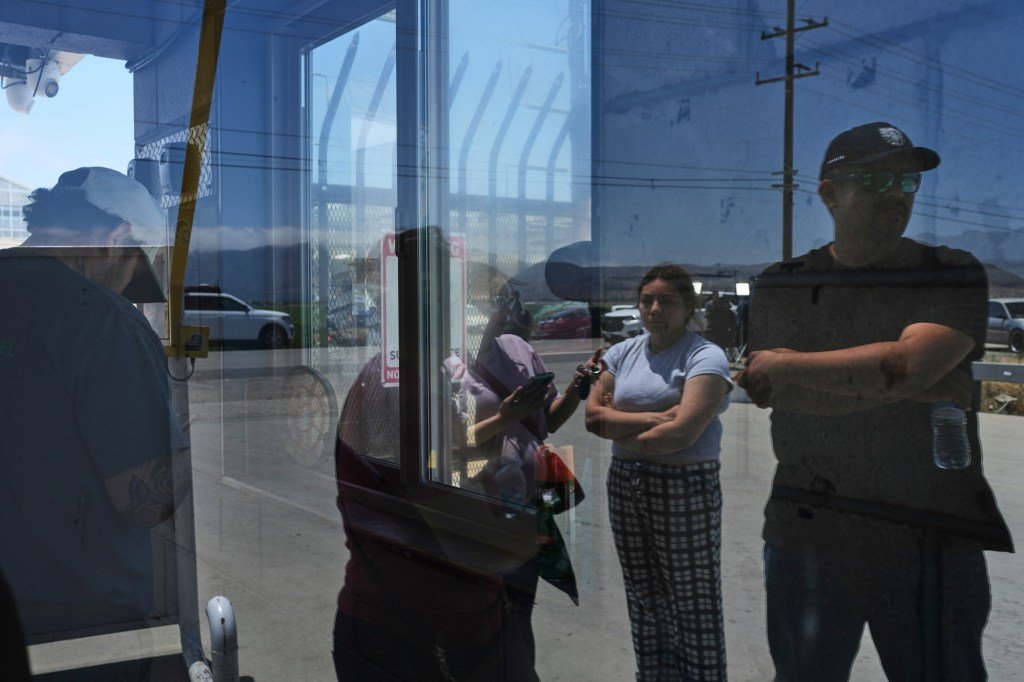California Immigration Raids: A Tipping Point for Social Justice?
On a sun-drenched Thursday afternoon in Los Angeles, the peaceful hum of a neighborhood car wash shattered abruptly as federal agents stormed in. Customers, young Latino men clad in work uniforms, were caught off guard, their laughter turning to panic as agents rounded them up. The tension in the air was palpable, as were the cries of mothers and fathers witnessing their children being taken away. This visceral scene has become emblematic of a new regime of immigration enforcement under the Trump administration, a regime that many describe as echoes of racial profiling and systemic injustice.
A Legal Challenge Ignites Activism
A recent federal court ruling in California has given fresh momentum to immigrant advocacy groups. On July 11, 2025, Judge Maame E. Frimpong ordered the Trump administration to halt what has been described as “indiscriminate immigration stops” across seven counties, including the cultural behemoth, Los Angeles. The lawsuit, initiated by a coalition of advocacy groups, underscores systemic patterns they argue are driven by racial bias, with some recent enforcement actions characterized as “aggressive” and disproportionate against Latino communities.
State of Fear
The wave of immigration raids has left tens of thousands in Southern California navigating a climate of dread. In a recent survey conducted by the American Civil Liberties Union (ACLU), more than 60% of immigrant families reported avoiding local businesses and community gatherings for fear of being detained or separated.
- Targeted Communities: Detainments and stops appear to disproportionately affect Latino individuals, regardless of their immigration status.
- Racial Profiling: Eyewitness accounts reveal federal agents often focus on individuals based on profiling rather than legitimate legal criteria.
- Lack of Legal Representation: A culture of fear has led to gross violations of constitutional rights, marked by limited access to legal aid.
Legal Voices Weigh In
Immigration lawyer Dr. Linda Morales, who has represented numerous clients in similar cases, emphasizes the gravity of the situation. “This isn’t just about immigration; it’s about civil rights,” she asserts. “The indiscriminate nature of these raids severely undermines the trust between law enforcement and immigrant communities, setting a dangerous precedent for what can be classified as legal conduct.” According to Dr. Morales’ latest study on community safety and immigration enforcement, nearly 80% of those surveyed reported feeling unsafe in their own neighborhoods.
The chilling atmosphere led to not just individual suffering but collective outrage across Southern California. One of the plaintiffs, Brian Gavidia, an American citizen, described his own experience of being detained: “I was just working at a tow yard when they grabbed me and took me aside. They didn’t even ask for ID. I felt like a criminal.” Such stories resonate with immigrant families now fearing everyday activities like shopping or working, activities that were once a source of pride.
Judicial Orders and the Voice of Dissent
After hearing testimonies that highlighted the constitutional violations perpetuated during these raids, Judge Frimpong emphasized the need for legal safeguards against systemic abuse. “You cannot institutionalize fear and expect communities to thrive. These tactics are unconstitutional,” she stated emphatically in her ruling.
In light of the judge’s findings, both federal agents and the Department of Homeland Security found themselves having to adapt their strategies. This court ruling came on the heels of advocacy groups asserting that many detentions were not only racially motivated but also executed without due process. “These are not isolated incidents,” noted ACLU attorney Mohammad Tajsar. “This is a pattern of abuse rooted in discrimination.”
The State’s Response
In contrast, U.S. government representatives have vehemently denied any allegations of racial profiling. Attorney Sean Skedzielewski stated, “Our operations are targeted and based on intelligence, not on the color of skin or clothing.” Yet skepticism remains high among many community members and advocates who argue that these reassurances are insufficient. The reality is that when fear inhibits activity, it creates a compounding effect on the community at large.
Voices from the Ground
As civil disobedience and public protests escalate, the community’s voices have become increasingly unified. Demonstrations across the region have drawn thousands, urging lawmakers to reconsider the enforcement of current immigration policies. Activist group Undocumented Voices staged a rally just outside the federal courthouse, where a deft manifesto was shared asserting: “We are not criminals; we are families.” Their message is clear: the constitutional rights of immigrants cannot be sidelined when enforcement actions are undertaken.
Despite the federal government’s assertion that immigration tactics adhere to the law, an 18-state coalition has rallied behind California, aligning against these practices. Their joint statement elevates concerns not just about civil rights but the very fabric of communities: “A nation built on diversity cannot afford to forsake its most vulnerable citizens.”
The momentum gained from this legal victory has sparked renewed hope, suggesting that perhaps a pivotal shift is at hand. The ongoing struggle has highlighted the complexities of balancing national security concerns with human rights protections—a conversation that resonates deeply across various facets of American society.
For many in California, the recent rulings serve as a lifeline, but the challenges that lie ahead remain daunting. As communities confront a federal government employing aggressive tactics against their most vulnerable citizens, the struggle for justice and dignity is far from over. The question lingers: can a fractured narrative of fear and mistrust find reconciliation in the spirit of unity and justice? Only time will tell.





